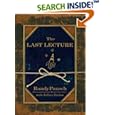
Iterative Path
Deliver now! Improve constantly!
Tuesday, February 2, 2010
Wednesday, March 4, 2009
Sunday, December 21, 2008
Paying customers to get them on your mail list
Last week I took my car to the dealer to attend to the recall. The service manager asked if I wanted to be on their mailing list, "No spam, we will jsu send you coupons and offers". I was hesitant then I asked if they can do the oil change at a $10 discount and he immediatly agreed. This led me to thinking:
- It is possible service manager is incented to signup as many customers as possible for the mailing list and may even be incented per email. Since he is not hit with the $10 reduction in oil change fee he is more inclined to offer these discounts to sign up people. If this is the case the dealership not only does not know for building its customer mailing list but also may be acquiring cutomers with very low or negative Long Term Value (LTV).
- Perhaps the dealship always overcharges customers and only the uninformed pay the full charge. This would mean they are relying on their customers ignorance and not building a trust based relationship. If this were the case then it defeats the purpose of a mailing list, when your interactions with the customers are more transactional, you hope to capture all the value in one transaction.
Friday, December 5, 2008
Sunday, November 30, 2008
Deflation is in the minds of customers, just like Inflation
The New York Times story on Black Friday sales has this quote from a non-shopper,
At Westfield Century City Shopping Center in California, Harper Mance, 31, said: “I’m looking around, thinking, ‘If there are discounts on everything now, what’s it going to be like after Christmas?’ You know it’s going to go down further.”
Sunday, November 23, 2008
Innovation Crisis in US
"The US system of public education must lay the foundation for developing a workforce that is literate in mathematics and science, among other subjects. It is the creative intellectual energy of our workforce that will drive successful innovation and create jobs for all citizens."
Tuesday, November 18, 2008
Friday, September 5, 2008
Market Share At Any Cost
Going after market share with a low price strategy may look attractive in a competitive environment with no clear differentiation between the products. But when price is the only appealing factor, companies stand to lose value in a spiraling price war. The lure of market share is more prevalent in consumer products where companies are destroying value and commoditizing their premium brands with price cuts.
The newly appointed CEO, Paul Polman, of embattled Consumer Products maker, Unilever, has this to say about his strategy:
Mr.Polman nailed it.
The newly appointed CEO, Paul Polman, of embattled Consumer Products maker, Unilever, has this to say about his strategy:
We are not going to have a mentality to grow at the expense of othersHe was quoted as saying that he would avoid fighting for market share at any cost, a trap that lead companies to cut prices too steep or chase low-margins products.
Mr.Polman nailed it.
Monday, September 1, 2008
Randy Pausch and Randy Komisar - Trade Money For Time

 This weekend I watched the time management lecture by Randy Pausch, (well known for his terminal condition and his book The Last Lecture). I also read a book by Randy Komisar, The Monk and The Riddle. The two Randys talked about exactly the same thing.
This weekend I watched the time management lecture by Randy Pausch, (well known for his terminal condition and his book The Last Lecture). I also read a book by Randy Komisar, The Monk and The Riddle. The two Randys talked about exactly the same thing. Their core concept is the same, simple and profound - worry about the scarcest and non-reprehensible resource. Time and not money. Both goad us to ask ourselves, " if I only had a short time to live, would I want to do what I am doing now. Is what I am doing worth my time? What is the opportunity cost?
 While Komisar is more holistic in his approach and asks " if I am doing step-1 because it has to be done so I can get to do step-2, which I love and is really what I want to do for the rest of my life, why? Why not do what I really want to do now? Why wait? Why subscribe to 'deferred life policy'?"
While Komisar is more holistic in his approach and asks " if I am doing step-1 because it has to be done so I can get to do step-2, which I love and is really what I want to do for the rest of my life, why? Why not do what I really want to do now? Why wait? Why subscribe to 'deferred life policy'?" He talks about 'drive' which pushes you to do things you have to do while 'passion' pulls you towards things you would rather be doing.
He talks about 'drive' which pushes you to do things you have to do while 'passion' pulls you towards things you would rather be doing. While Komisar simply asked us to imagine our final days, Pausch literally had only few days to live and died recently.
Pausch gives tools and tactics to operationalize this, with specific and tionable and habit forming TODOs.
Together the two tell us to focus on our passion and how we go about achieving it.
Komisar's book also gives brief insights into how startups and VCs work, how they think about valuation from their perspectives and some funny anecdotes on life in the valley.
Subscribe to:
Comments (Atom)
This blog, its contents and all the posts are solely my own personal opinions and definitely not my employers'. I do not represent any other individual, organization or client in this blog.